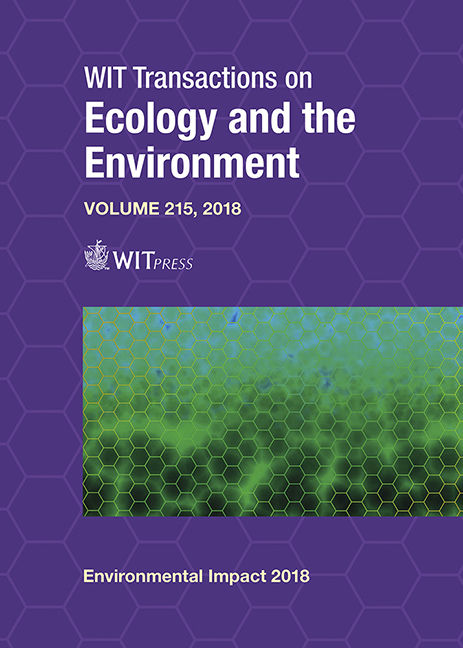FOOD SUPPLY CHAIN IN THE UNITED STATES: POTENTIAL ENVIRONMENTAL IMPACT
Price
Free (open access)
Transaction
Volume
215
Pages
11
Page Range
249 - 259
Published
2018
Paper DOI
10.2495/EID180231
Copyright
WIT Press
Author(s)
SHAHLA M. WUNDERLICH, MARIELLE SMOLLER
Abstract
The Food Supply Chain describes how raw materials are transferred from suppliers to manufacturers, distributers, retailers, and finally, to customers. Consumers are becoming increasingly concerned with how their food is sourced and produced in regard to the environment. The Green Food Supply Chain (GFSC) is gaining popularity in the United States (U.S.) as it integrates environmentally friendly and sustainable food production practices. Consumers are often unaware of the first step of the supply chain, which is food production. The different food production systems include Conventional, Organic, and Genetically Modified Organisms (GMO), and each has a different impact on the environment. In order to assess consumers’ knowledge and preferences about their food’s sources, 204 adult participants completed an online survey regarding this topic. The survey included demographic questions and general questions about their knowledge of and their beliefs regarding GMO food production and its impact on the environment. Almost half (48%) of participants believed that GMO food production has a harmful impact on the environment, while 31.4% had no knowledge of GMO food production and environmental impact. A x2 test showed a significant association between preference for non-GMO and individuals’ beliefs on how GMO food production systems may impact the environment (x2 (1) = 29.592, p = 0.001). Of the 98 participants who believed that producing GMO foods has a harmful impact on the environment, 75% preferred foods to be labeled as non-GMO. Almost 80% of participants affirmed that the impact a particular food production method has on the environment affects their food purchasing decisions all of the time or sometimes. Individuals’ beliefs and knowledge of food production systems, and their possible impact on the environment, are important and influence demand. Therefore, consumers should be provided with more education and information about their food’s sources.
Keywords
environment, consumer, Genetically Modified Organism (GMO), systems, Food Supply Chain (FSC), Green Food Supply Chain (GFSC), sustainability, education, purchasing decisions, labelling





